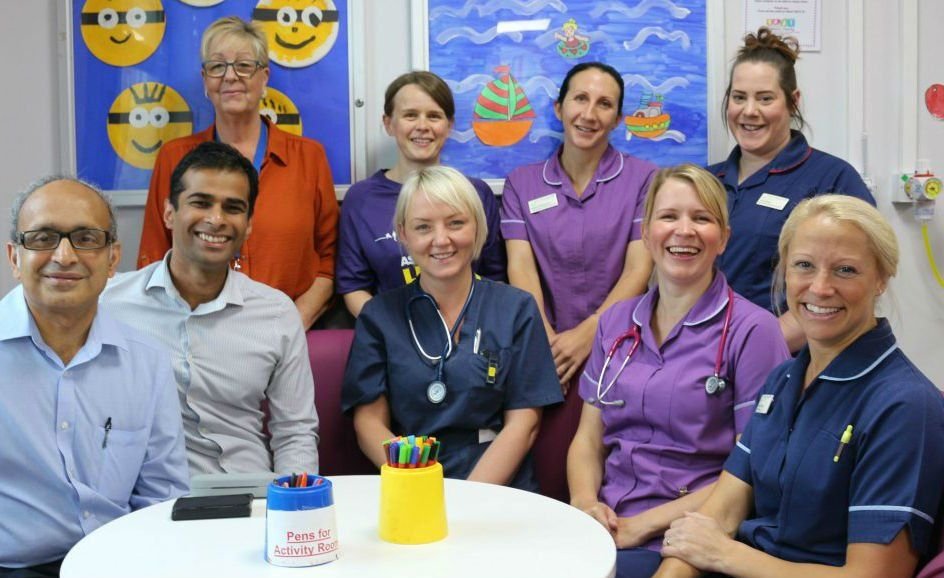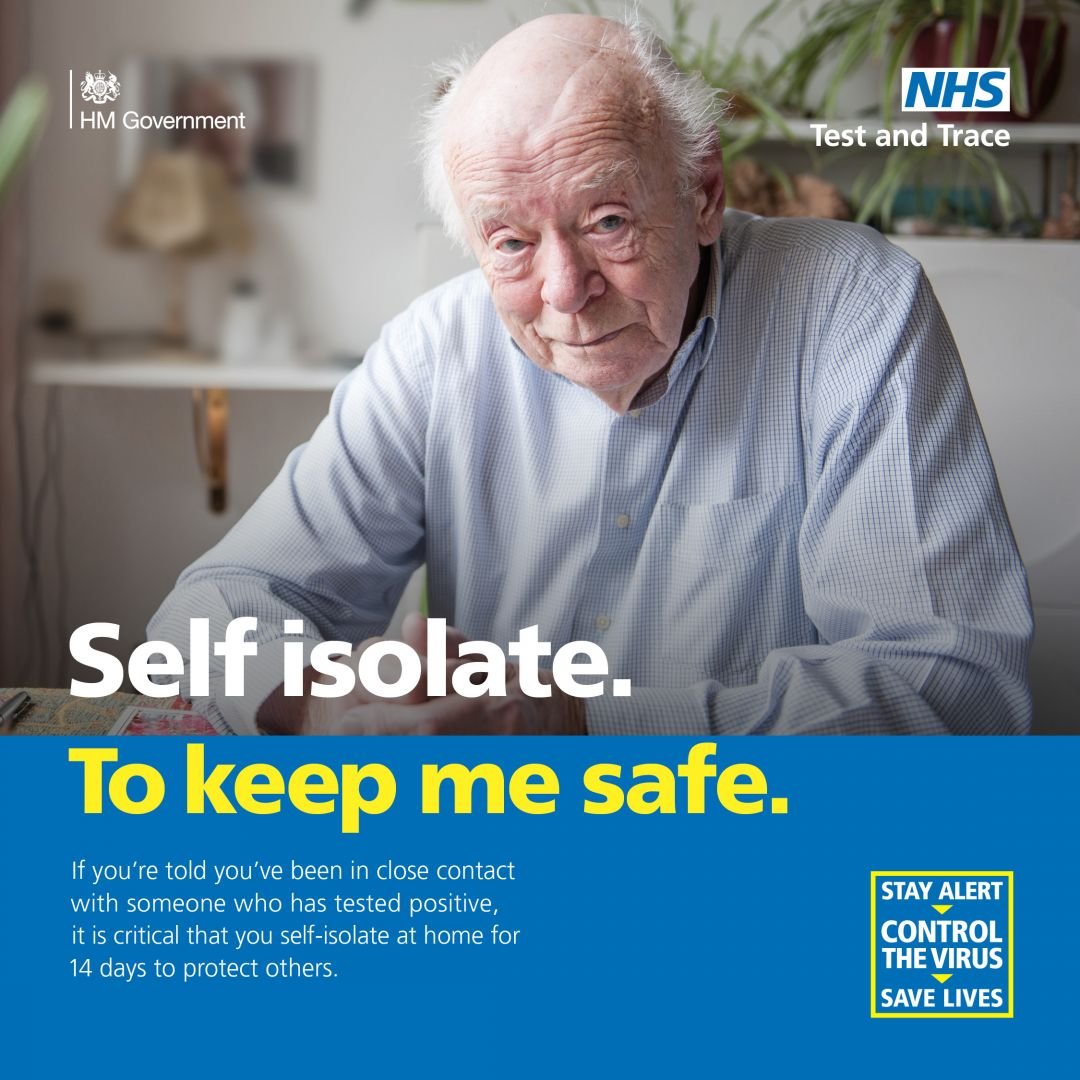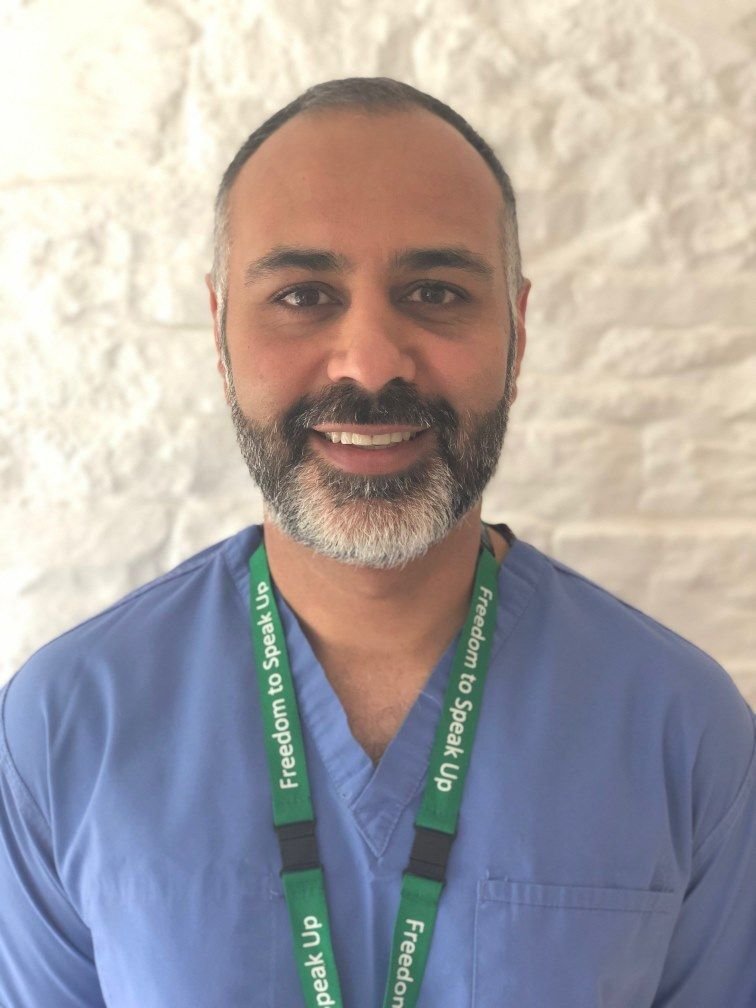Posted on: 28 August 2020
We Work Together - Frank Swinton and Yannish Naik
'We Work Together' is a podcast about working in partnership to improve the health and care of people in West Yorkshire and Harrogate, and the relationships between the people involved. In this episode, Frank Swinton and Yannish Naik, Joint Climate Change Leads for the West Yorkshire and Harrogate Health and Care Partnership, talk about climate change, sustainability and a range of related issues.
What else has been happening this week?
Episode 4 of 'Can You Hear Me?' now live
The latest episode of ‘Can You Hear Me?’, the West Yorkshire and Harrogate Health and Care Partnership’s BAME Staff Network podcast, is now available to listen to at https://
Children and Young People Programme
The Children’s Healthcare in the Community Project Team met on the 7 of August and was chaired by Sue Rumbold, the senior responsible officer for the project. The vision for the project was agreed as following:
- ‘That all children and young people are provided with local out-of-hospital care, where appropriate, that is highly responsive, effective and personalised.’
- The voice of the child and family is heard
- Additional capacity in the community workforce
- Empowered parents and carers who have more confidence in managing their child’s condition
- A focussed effort to reduce health inequalities
- Joined up care and integration with partner providers, good quality data, integrations of digital information and optimised pathways and processes.
Maximising the opportunities for digital consultations and use of mobile devices for recording observations. The outcomes were also agreed as:
- Better access to high quality care for our children across WY&H
- Reducing unnecessary A&E attendances and associated hospital admissions for children
- Reducing the number of children in for in-patient observations overnight
- Reduction in face to face assessments taking place at hospital sites
- More patient care delivered in the local community
- Providing primary care with confidence to utilise community paediatric healthcare.
 The group agreed to think through how we will achieve these outcomes and what actions are required to move forward in advance of winter. It was agreed that clinically led focused work on asthma and children with respiratory problems has to take place. As such the group agreed to form a group to look at the guidance on asthma, wheeze and respiratory conditions in advance of winter. Data requirements for the project were also discussed and the principles for data collection were agreed. Data needs to be readily available and comparable between trusts. Data is being collated so the baselines can be measured. Work from the West Yorkshire and Harrogate Urgent and Emergency Care Nursing Associate Programme was also presented. The two year programme has been developed in conjunction with the University of Huddersfield and the first course will run in December 2020. The programme benefits from rotational working with 60% of the course being work based. It will provide trainees with a broad knowledge across a whole raft of services. Upon completion of the course the trainee will receive 30 credits equivalent at MSE level. We are looking at how this programme can develop a skilled workforce to support the approach to more care in the community for children and young people.
The group agreed to think through how we will achieve these outcomes and what actions are required to move forward in advance of winter. It was agreed that clinically led focused work on asthma and children with respiratory problems has to take place. As such the group agreed to form a group to look at the guidance on asthma, wheeze and respiratory conditions in advance of winter. Data requirements for the project were also discussed and the principles for data collection were agreed. Data needs to be readily available and comparable between trusts. Data is being collated so the baselines can be measured. Work from the West Yorkshire and Harrogate Urgent and Emergency Care Nursing Associate Programme was also presented. The two year programme has been developed in conjunction with the University of Huddersfield and the first course will run in December 2020. The programme benefits from rotational working with 60% of the course being work based. It will provide trainees with a broad knowledge across a whole raft of services. Upon completion of the course the trainee will receive 30 credits equivalent at MSE level. We are looking at how this programme can develop a skilled workforce to support the approach to more care in the community for children and young people.
The West Yorkshire, Test, Trace, Isolate Programme
 The West Yorkshire, Test, Trace, Isolate Programme met on Friday 21 August. It includes colleagues from public health and the NHS. The senior responsible officer for the programme is Martin Barkley, CEO for Mid-Yorkshire Hospitals NHS Trust.
The West Yorkshire, Test, Trace, Isolate Programme met on Friday 21 August. It includes colleagues from public health and the NHS. The senior responsible officer for the programme is Martin Barkley, CEO for Mid-Yorkshire Hospitals NHS Trust.
Bradford (5), Calderdale (9), Kirklees (12) and Wakefield (21) are in the top most watched list in the country (accurate at 21 August). This is based on various indicators and assessment of local response and plans. This includes area outbreaks which cross geographical boundaries, positivity rates from high number of tests etc. You can read the latest here.
At the meeting there was a conversation around communications and connections across primary care and social care and the importance of using the primary care networks to share local outbreak messages, where relevant. Isolating when required is key to breaking the chain of infection. The approach to follow up with welfare checks to ensure people are receiving the support they need to self-isolate is an important part of test and trace.
Suicide reduction campaign for staff
Reducing suicide by 10% across West Yorkshire and Harrogate by 2020/21 and achieving a 75% reduction in targeted areas by 2022 is one of West Yorkshire and Harrogate Health and Care Partnership’s 10 big ambitions. This ambition supports and complements the work taking place in our six local places (Bradford district and Craven; Calderdale, Harrogate, Kirklees, Leeds and Wakefield). The project group made up public health colleagues, voluntary partners, suicide reduction specilaists, Healthwatch and people who have direct experience met on Wednesday. The group has been meeting since last autumn to co-produce a campaign.
To develop the most effective campaign, 2-hour virtual workshops will take place during September to learn from experts and colleagues experiences across West Yorkshire and Harrogate to develop the campaign. If you would like to get involved please contact karen.coleman21@nhs.net. We will keep you updated throughout.
Personal Protective Equipment Programme Board
The Personal Protective Equipment (PPE) Programme Group meets today. The meeting will be chaired by Mel Pickup, CEO for Bradford Teaching Hospitals NHS Foundation Trust. The purpose of the group is to ensure PPE supply chain arrangements are in place to maintain, manage and forecast need. The group includes colleagues from across the Partnership, including clinicians, procurement /supply specialists and representation from West Yorkshire Local Resilience Forum (LRF) and NHS England. The work also covers primary care, smaller healthcare providers and new representatives will be joining the group. Clinical reference and procurement sub-groups support the programme.
Across West Yorkshire and Harrogate, work is underway to project the amount and type of PPE required in different health and social care settings as we restore the system and plan from now until March 2021. The PPE portal is in place and can be used by social care, primary care providers to order and receive critical COVID-19 PPE. The PPE Programme Board will continue to meet until at least March 2021.
Changes to West Yorkshire vascular services planned for November 2020
 In May 2020, NHS England and Improvement approved proposals to have two specialised vascular centres instead of three in West Yorkshire - one at Leeds General Infirmary due to its status as a major trauma centre and the other at Bradford Royal Infirmary due to its co-location with renal care.
In May 2020, NHS England and Improvement approved proposals to have two specialised vascular centres instead of three in West Yorkshire - one at Leeds General Infirmary due to its status as a major trauma centre and the other at Bradford Royal Infirmary due to its co-location with renal care.
The trusts are now in a position to move forward with this work. The partnership is working towards a planned completion date of November 16, 2020, subject to approval in October.
From this date, all in-patient and acute vascular work for West Yorkshire will be undertaken at the two arterial centres, whilst all centres will continue to offer day case surgery and interventional radiology, out-patient clinics and diagnostics.
The partnership has established operational working groups at both Bradford Teaching Hospitals NHS Foundation Trust and Calderdale and Huddersfield NHS Foundation Trust to support, shape and progress plans for implementation.
A readiness checklist is in place to ensure all changes can be implemented safely while trusts continue to respond to the Covid-19 pandemic and prepare for the winter months.
Bradford District and Craven – Health and Social Care Economic Partnership
Developing their health and social care workforce for the 21st century
 Bradford District and Craven are ramping up their ambition to meet the future demand for health and social care jobs. They are doing this through a collaboration between ‘anchor’ organisations who have come together as the Health and Social Care Economic Partnership (HSCEP) with collective ambition to develop an inclusive approach to recruitment and workforce development so that we can build a 21st century workforce.
Bradford District and Craven are ramping up their ambition to meet the future demand for health and social care jobs. They are doing this through a collaboration between ‘anchor’ organisations who have come together as the Health and Social Care Economic Partnership (HSCEP) with collective ambition to develop an inclusive approach to recruitment and workforce development so that we can build a 21st century workforce.
The HSCEP was formally established in 2019. It includes the Bradford District’s three local hospital trusts, its three Colleges, the University, the Local Authority, the Clinical Commissioning Group and also has representation from the care sector and voluntary sector.
Their ambition is to radically change the way partners recruit, develop and retain people within the health and social care sector. This will be fully supported by the vital role played by education partners, offering a wide range of learning opportunities to meet the specific needs of the area. Building on early successes, the Partnership are developing plans for a new Centre for Workforce Development. The Centre is being established using external funding from the Leeds City Region Business Rates Pool (£1.1m until 2022). It’s still early days, and plans will develop over the coming months with a full web presence due for launch by the end of the summer, alongside establishing the Centre’s longer term business plan for the next five years.
 Successes to date have included the inclusive community recruitment project which has seen community engagement officers support 868 people in taking their first steps to employment, with 56 already in health and social care employment, 142 undergoing skills and vocational training, 51 in volunteering roles and 664 continuing to be supported in their personal journeys to get inspiring jobs in the sector.
Successes to date have included the inclusive community recruitment project which has seen community engagement officers support 868 people in taking their first steps to employment, with 56 already in health and social care employment, 142 undergoing skills and vocational training, 51 in volunteering roles and 664 continuing to be supported in their personal journeys to get inspiring jobs in the sector.
The pandemic has seen the health and social care sector respond positively and rapidly to new challenges. Bradford Council’s Skills House service, supported by the HSCEP team, has developed a care assistants casual pool to support the independent care sector. Job coaching has been provided virtually for new recruits with many taking part in fast track training and induction. Student nurses have also had their placements tailored so they can maximise their support in health settings during the pandemic.

